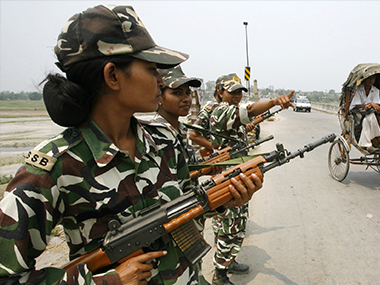A gradual breakdown of the public/private domain is evident in the fact that women are being welcomed into spheres that were previously dominated by men. On 5 June, the Indian Army, one of the largest in the world, announced that it is ready and willing to recruit women in combatant positions . Combatant positions in the military were, for a long time, considered the domain of the man, and this announcement is nothing but incredible in a world where gender barriers are coming down vigorously to allow for a more tenable integration of the public and private spheres.
Army chief General Bipin Rawat stated that the procedure to hire women in combat roles is moving swiftly. Speaking to PTI, he said, “I am looking at women coming in as jawans. I am going to start it soon. Firstly, we will start with women as military police jawans… We have already started the process and women will now have an opportunity to show their grit and strength in taking up challenges in combat roles and shattering the glass ceiling.” If this procedure is indeed adopted, India will join the league of elite nations such as Britain, Finland, Germany, Australia, Canada, the US, Denmark, France , Norway, Sweden and Israel, that recruit both women and men in combat roles in their armed forces.
It is not that women were isolated from the battlefield altogether — but until now, women have served in the army in gender-stereotyped care-giving and mediation roles such as the medical, legal, educational, signals and engineering wings. Combat positions were always off-limits because of limitations in logistics and perspective. In the same vein, last year, the Indian Air Force inducted three women as fighter pilots. The recruitment took place a year after the government decided to open the stream to women on an experimental basis. [caption id=“attachment_3522053” align=“alignleft” width=“380”] Representational image. Reuters[/caption] While on the face of it, this move may sound overwhelming and might reflect the shattering of the glass ceiling in India, if it is not implemented with caution and sensitivity, there is a likelihood of a massive failure on the part of the government. At this point, the initiative sounds like a display of State feminism on the part of the Indian Army. For instance, Rawat wants to recruit them as ‘jawans’ — a term that is used for men, and a term that does not have a gender-neutral alternative and a term that might mean the erasure of the concept of gender in wartime. And as path-breaking as the move sounds, the question remains: Will women be treated as and expected to behave as men in the forces? Placing a woman in a male-centric, masculine environment is a not a feminist move. What would be progressive is to adapt the environment during combat and training to suit the needs of all individuals, irrespective of their gender. As the record has indicated, women are integrated into mainstream sectors and industries with the expectation that they will compromise in the male-dominated environments without negotiating for a change. Such partial integration is not affirmative, and especially not accommodative of the narrative of struggle that is fundamental to the women in India. Another problem is whether gender sensitisation would do any good towards potentially minimising and preventing crimes against women ‘jawans’ by male counterparts or superiors. Armies function on a mix of chauvinism, fragile patriarchy and deeply-ingrained prejudices at the ground level that might give way to sexual violence against the recruited ‘women jawans’. How will the administration of the Indian Army deal with this? There needs to be strategic thinking around this — a blind implementation of a gender-blind or male-centric policy will only do more harm than good. Most importantly, it would be wise to think about how best to change the way women are viewed during wars, and whether that would impact the recruitment plans of the Indian Army. So far, women have been dehumanised; often considered the victims of war, sometimes they even served as the spoils of war — even in wartime, women are objectified ruthlessly. The concept of gender roles is almost impossible to isolate from the domain of war — and therefore, the idea of women in war is distinctly separate from women at war.
As International Relations expert Joshua Goldstein states, “Because of the feminisation of noncombat, the presence of women in combat might upset the male soldiers. Women often participate actively as codependents, so to speak, facilitating men’s militarised masculinity.” Finally, I would raise the pertinent question of security of these women during wartime. In conflict zones, due to socialisation, men tend to assume the role of ‘protectors’ of women, as well as the role of demonstrators of power and this is where the dichotomy of “our women” and “their women” comes in, and because of this, women combatants might be victims of wartime sexual violence. A concern here is that when a nation is unable to protect women inside their homes, and is reluctant to legalise marital rape to prevent and redress crimes against women in the private sphere, will it be able to make conflict and wartime safer for women combatants? A nation that condones and normalises sexual assault by a husband or intimate partner, may also end up normalising wartime sexual violence. Perhaps we should put our heads together and consider whether we are ready for such a bold step of recruiting women in the Indian Army? The decision maybe path-breaking from a strategic conflict perspective, but from a gendered lens, there appears to be an inherent flaw in the plan.


)

)
)
)
)
)
)
)
)



